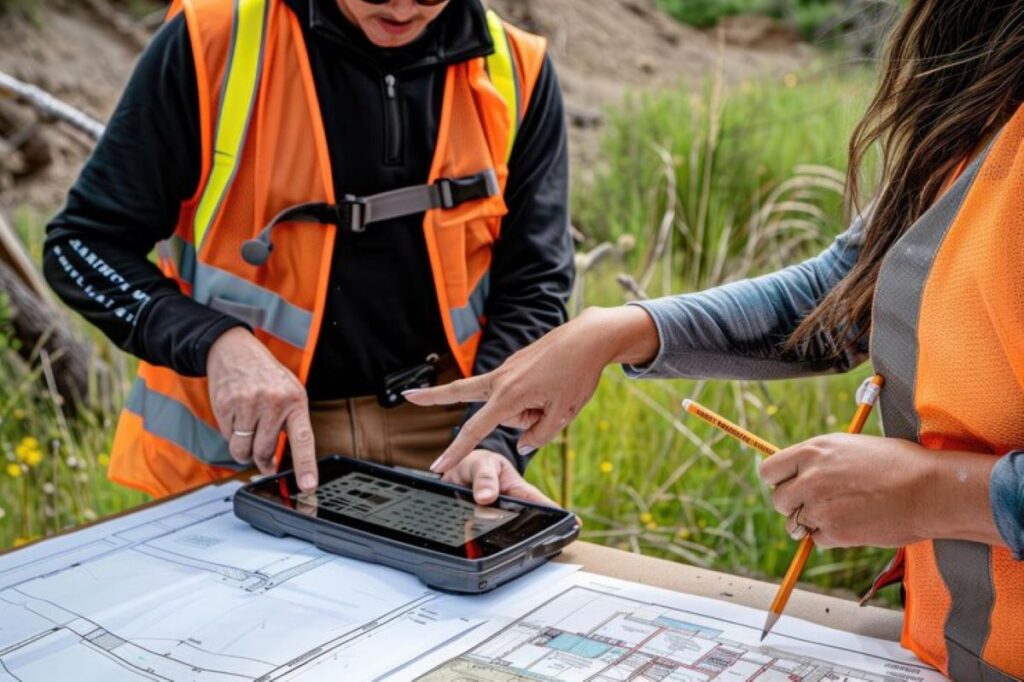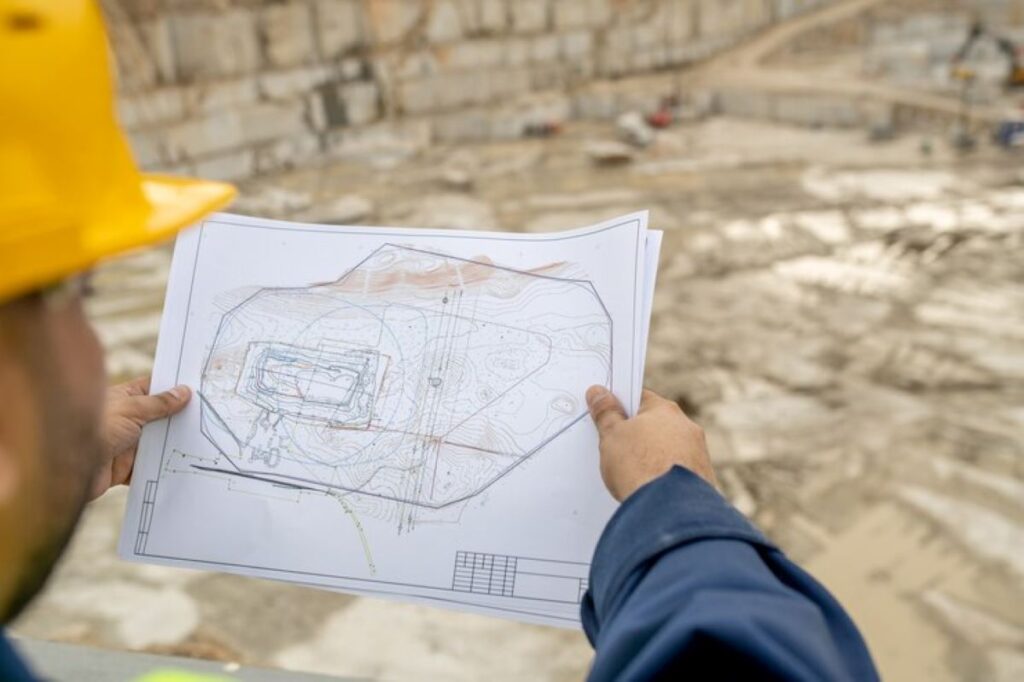Embarking on a land development project is an exciting yet challenging endeavour that requires meticulous planning and execution. One of the critical steps in ensuring the success of such projects is conducting a detailed survey. A detailed survey provides essential data about the land, which is crucial for informed decision-making and effective project management. Understanding when and why you need a detailed survey can significantly impact the outcome of your development project.
Understanding the Importance of a Detailed Survey
What is a Detailed Survey?
A detailed survey, also known as a topographic survey, is a comprehensive analysis of a particular parcel of land. It involves measuring and mapping the contours, features, and boundaries of the land. This survey provides a detailed representation of the site, including natural and man-made features such as trees, buildings, roads, and utilities. The information gathered is vital for architects, engineers, and developers to design and plan effectively.
The data from a detailed survey helps in understanding the topography of the land, identifying potential challenges, and determining the feasibility of the proposed development. It serves as a foundational document that guides the entire development process, from initial planning to final construction.
Moreover, a detailed survey is often required by local authorities and regulatory bodies to ensure compliance with zoning laws and building codes. It provides a factual basis for obtaining necessary permits and approvals, thereby facilitating a smoother development process.
Legal and Regulatory Requirements
Before commencing any land development project, it is imperative to be aware of the legal and regulatory requirements that govern land use and development. A detailed survey is often a mandatory requirement for obtaining planning permission and other necessary approvals. It ensures that the proposed development adheres to local zoning laws, environmental regulations, and building codes.
Regulatory bodies use the data from detailed surveys to assess the potential impact of the development on the surrounding environment and community. This assessment helps in identifying any potential legal issues or constraints that may arise during the development process. By conducting a detailed survey, developers can address these issues proactively, thus avoiding costly delays and legal disputes.
Furthermore, a detailed survey can help in resolving boundary disputes and clarifying property lines. It provides an accurate and legally recognised representation of the land, which can be used as evidence in legal proceedings if necessary.
When to Conduct a Detailed Survey
Pre-Purchase Considerations
Conducting a detailed survey before purchasing a piece of land is a prudent step that can save time and money in the long run. It provides potential buyers with a clear understanding of the land’s characteristics, including its size, shape, and topography. This information is crucial for assessing the suitability of the land for the intended development.
By obtaining a detailed survey before purchase, buyers can identify any potential issues or constraints that may affect the development process. This includes identifying flood-prone areas, unstable soil conditions, or existing easements and rights of way. Armed with this information, buyers can make informed decisions and negotiate better terms with the seller.
Additionally, a pre-purchase survey can help in estimating the costs associated with site preparation and development. It provides a realistic assessment of the work required to prepare the land for construction, allowing buyers to budget accordingly.
During the Planning Phase
The planning phase is a critical stage in any land development project, and a detailed survey plays a vital role in this process. It provides the necessary data for creating accurate site plans and designs, ensuring that the proposed development is feasible and compliant with regulatory requirements.
During the planning phase, architects and engineers use the data from the detailed survey to design the layout of the development, taking into account the natural features and constraints of the land. This includes determining the optimal placement of buildings, roads, and utilities, as well as identifying any potential challenges that may arise during construction.
Furthermore, a detailed survey helps in assessing the environmental impact of the proposed development. It provides information on existing vegetation, water bodies, and wildlife habitats, which is essential for conducting environmental impact assessments and obtaining necessary permits.
Before Construction Begins
Before breaking ground on a land development project, it is essential to conduct a detailed survey to ensure that the construction process proceeds smoothly. The survey provides a precise and up-to-date representation of the site, which is crucial for accurate construction planning and execution.
During the construction phase, the data from the detailed survey is used to set out the site and establish reference points for construction activities. This ensures that the construction work is carried out according to the approved plans and specifications, minimising the risk of errors and rework.
Additionally, a detailed survey helps in identifying any changes or discrepancies that may have occurred since the initial planning phase. This includes changes in the site’s topography, vegetation, or existing structures, which may affect the construction process. By addressing these changes proactively, developers can avoid costly delays and ensure that the project stays on schedule.

Benefits of a Detailed Survey
Enhanced Project Planning and Design
A detailed survey provides a wealth of information that is invaluable for project planning and design. It enables architects and engineers to create accurate and realistic designs that take into account the unique characteristics and constraints of the site. This results in more efficient and cost-effective designs that maximise the use of available land and resources. Click the link: https://lhpowerandlight.org/contour-and-detail-surveys-what-you-need-to-know-before-building/ to more guidence about contour and detailed surveys.
Furthermore, a detailed survey helps in identifying potential challenges and risks early in the planning process. This allows developers to address these issues proactively, reducing the likelihood of costly delays and rework during construction. By providing a solid foundation for planning and design, a detailed survey contributes to the overall success of the development project.
Improved Risk Management
Risk management is a critical aspect of any land development project, and a detailed survey plays a key role in this process. By providing accurate and comprehensive data about the site, a detailed survey helps in identifying potential risks and challenges that may arise during the development process.
These risks may include environmental hazards, such as flooding or soil instability, as well as legal and regulatory issues, such as boundary disputes or zoning violations. By identifying these risks early on, developers can implement appropriate mitigation measures and contingency plans, reducing the likelihood of costly delays and disruptions.
Moreover, a detailed survey provides a factual basis for making informed decisions and managing risks effectively. It enables developers to assess the feasibility of the proposed development and make adjustments as needed to ensure the project’s success.
Facilitating Communication and Collaboration
Effective communication and collaboration are essential for the success of any land development project. A detailed survey provides a common reference point for all stakeholders involved in the project, including architects, engineers, contractors, and regulatory authorities.
By providing accurate and up-to-date information about the site, a detailed survey facilitates clear and effective communication among stakeholders. It ensures that everyone is on the same page and working towards the same goals, reducing the likelihood of misunderstandings and conflicts.
Additionally, a detailed survey helps in coordinating the efforts of different teams and ensuring that the project progresses smoothly and efficiently. It provides a clear roadmap for the development process, enabling stakeholders to collaborate effectively and achieve the desired outcomes.

Conclusion
In conclusion, a detailed survey is an essential component of any land development project. It provides critical data that informs decision-making, enhances project planning and design, and facilitates effective communication and collaboration among stakeholders. By conducting a detailed survey, developers can ensure that their projects are feasible, compliant, and successful, ultimately leading to a positive outcome for all involved.
Whether you are considering purchasing a piece of land, embarking on a new development project, or preparing for construction, a detailed survey is a valuable investment that can save time, money, and effort in the long run. By understanding the importance and benefits of a detailed survey, you can make informed decisions and set your project up for success.




